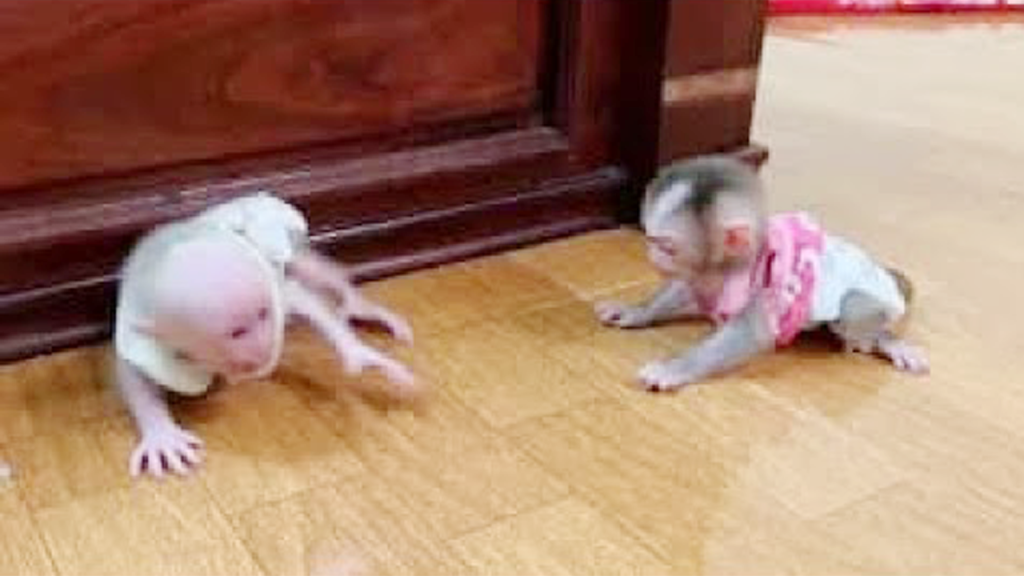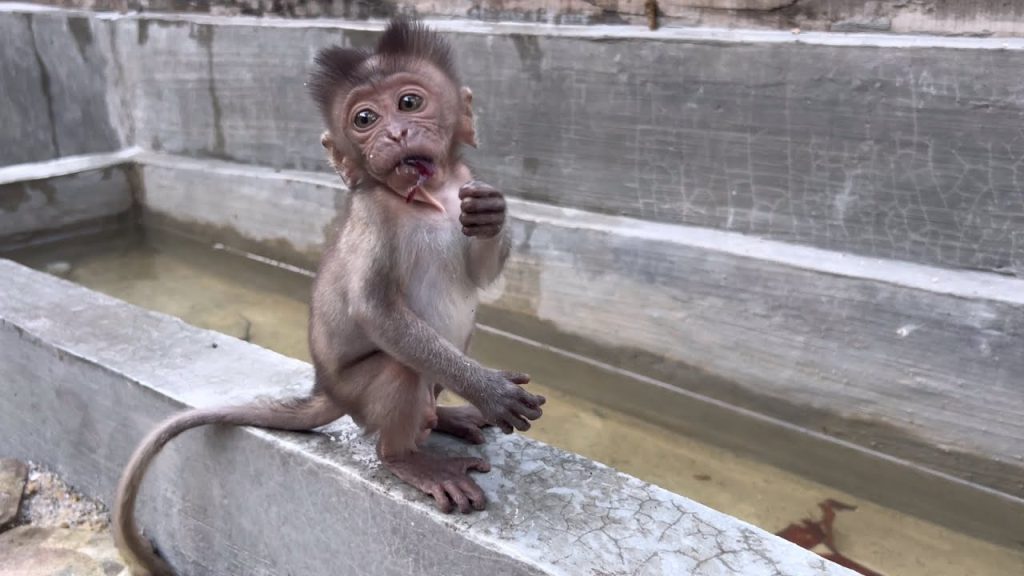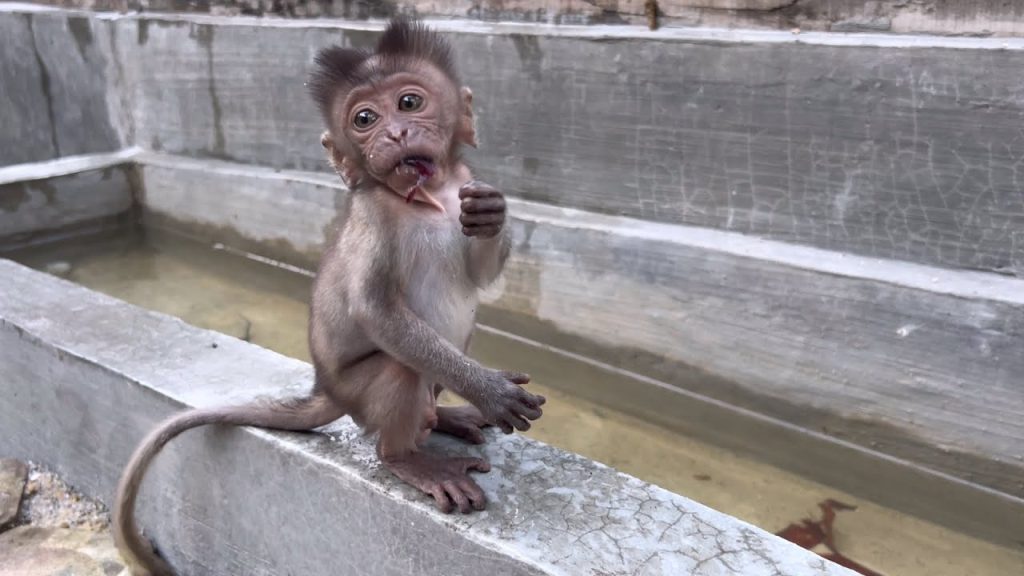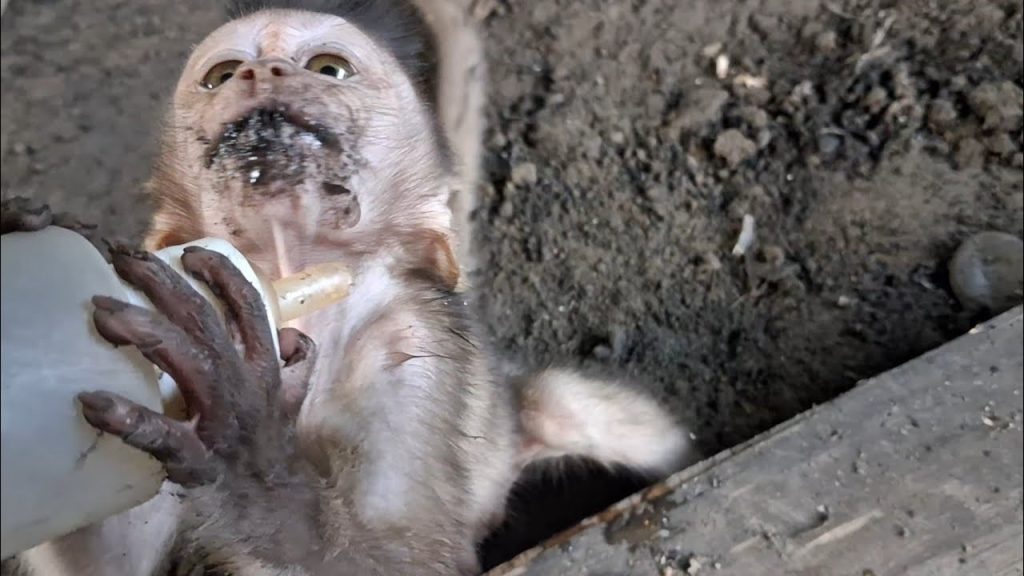
When Nasty ChiChi screams loudly in anger and pushes Linda out, the moment might look like a simple emotional explosion — but underneath that noise is a full storm of social insecurity, dominance fear, jealousy, and unregulated instinct. In tiny primates — and this includes human children, baby macaques, baby langurs, baby capuchins — emotion reaches the physical body faster than logic reaches the brain. So when ChiChi yells, she is not really trying to communicate with language — she is broadcasting a territorial warning. The push is not an accident. It is a physical punctuation mark added onto the emotional sentence: “This is MY space. Move.” But that instinct does not make the behavior acceptable. It only makes the behavior understandable.
For Linda, the victim in this moment, the shove is more than just being displaced. Being pushed out means being downgraded in the invisible social ranking at that exact second. Young primates build their entire sense of identity based on their position inside small peer groups. If they are invited closer to the group, they feel strong. If they are pushed outward, they feel weaker, rejected, or worthless. This is why a simple shove can become a deep emotional bruise. Linda does not only lose physical balance — she also temporarily loses her social footing.
Now comes the important part: the caregiver’s role. When ChiChi behaves like this, simply yelling back or hitting her wrist is not an effective strategy. Punishing a tantrum only adds more adrenaline into the chaotic brain. Instead, the real power is in re-structuring environment and reward systems. ChiChi should not automatically receive attention or treats after she pushes. The group must learn one core rule: aggression removes privilege. Calm allows privilege. That link must stay consistent, not random.
For Linda, support must come fast. Immediate gentle touch, soothing sound, stable arms — those things teach her that even in moments of being pushed away, safety returns afterward. This is how trauma does not settle inside her nervous system permanently.
And finally, when both are calm — that is when the real teaching moment exists. Not during the scream. Not during the push. But after silence returns. In that soft window, gentle guidance, slow feeding time, and shared reward can teach these babies that social space can be shared — without using force — and that true strength is shown by restraint, not by shoving weaker companions aside.


